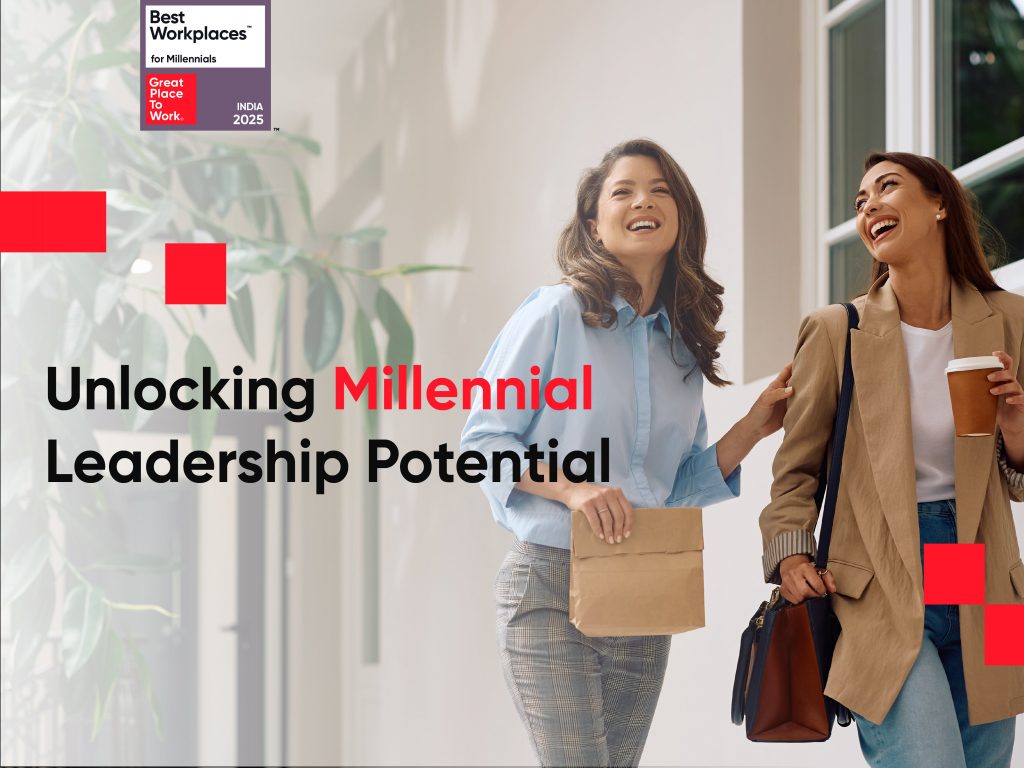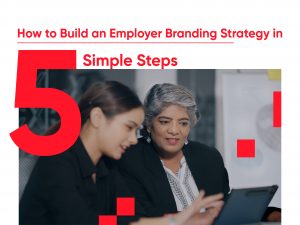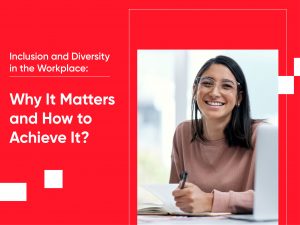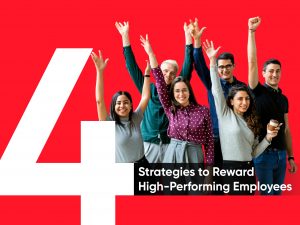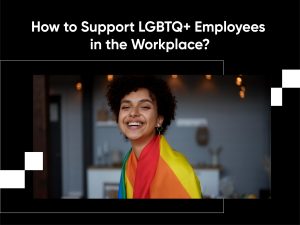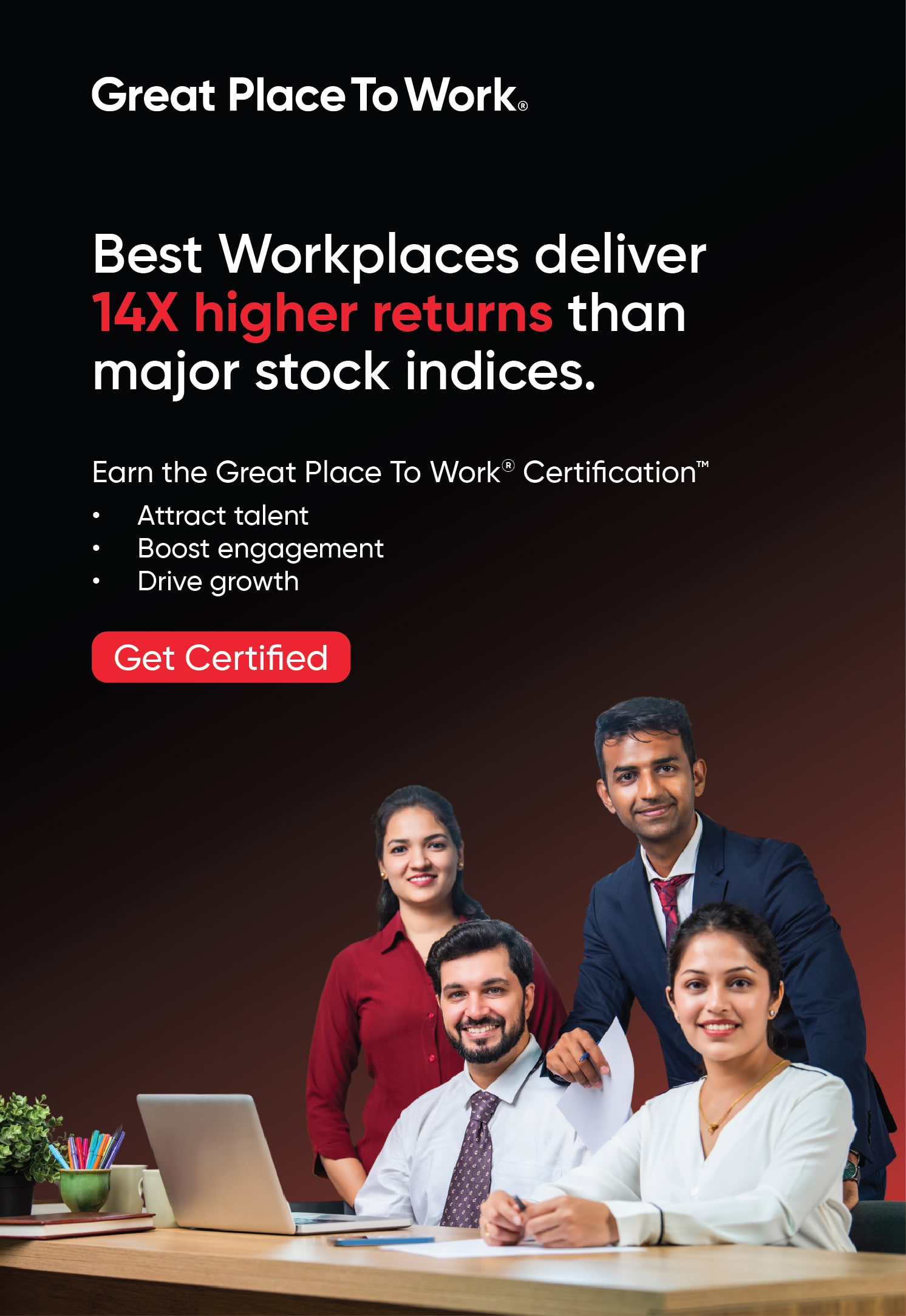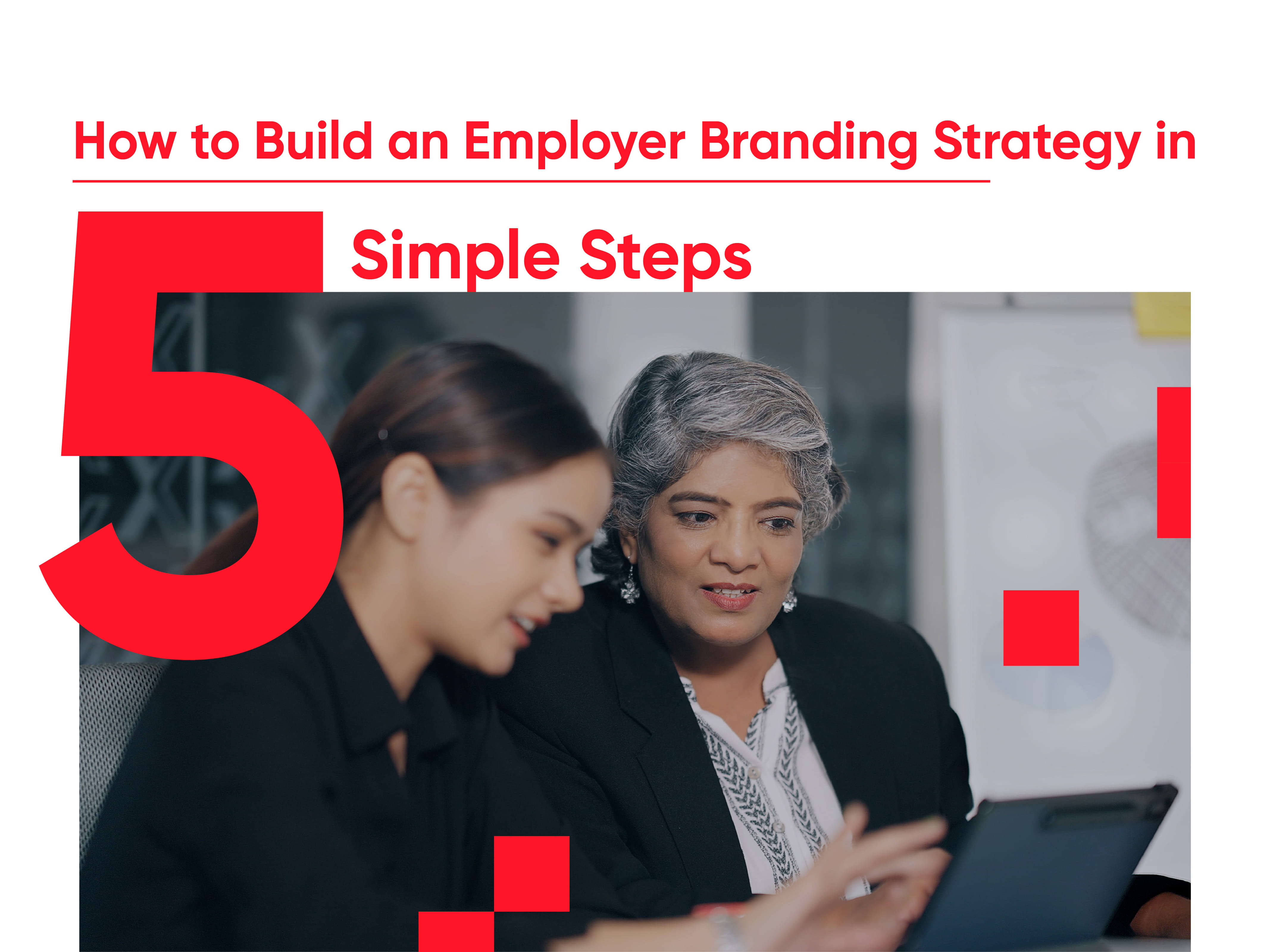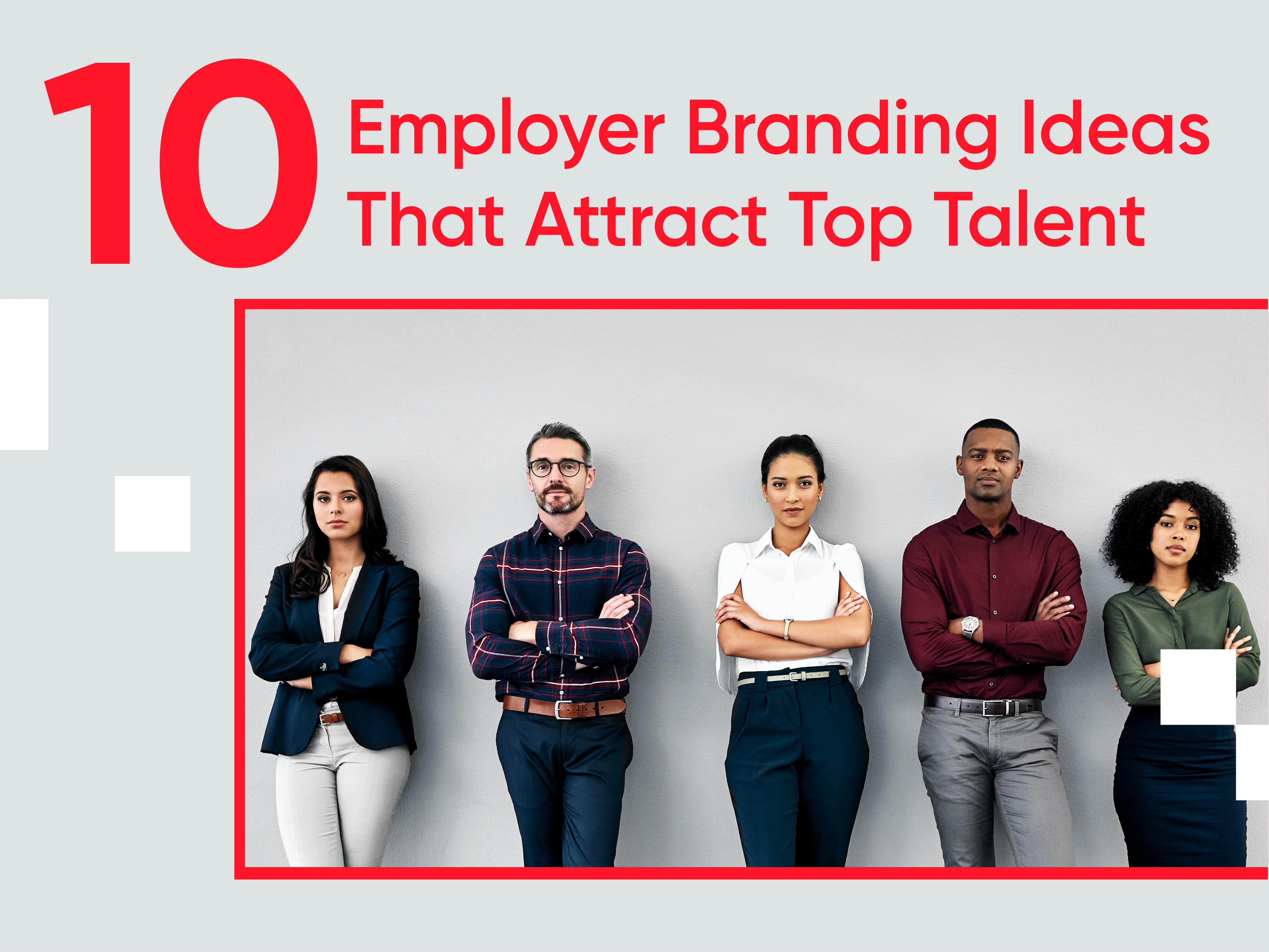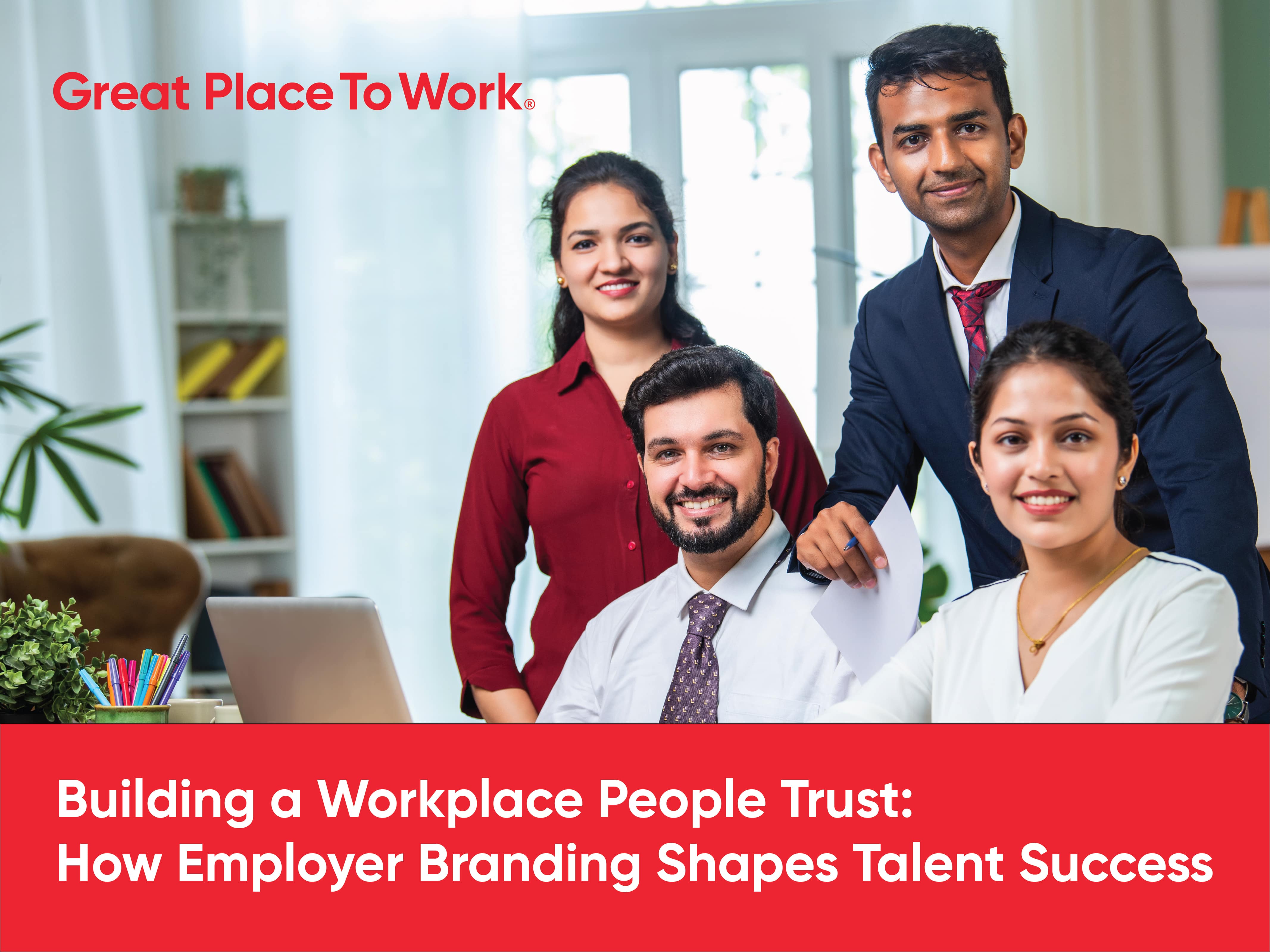Reading Time: 5 minutes
In 2025, 63% of the Indian workforce is represented by Millennials (a generation born between 1980 and 1997). Moreover, 65% of the millennials are working in supervisory, managerial or senior managerial roles, enhancing the criticality of this group further. Thus, millennial managers act as a critical link between the leadership team and entry-level employees and play an important role in delivering business results. However, the latest study by Great Place To Work® India reveals that 23% of the millennial managers do not feel involved in decision-making at work. This calls for the attention of leaders across India Inc., as a positive experience or lack of the same for this group is likely to have an exponential impact on the overall employee experience across the organisation.
Although the business case for involving millennial managers is significant. Millennial managers across age groups (younger millennial managers and older millennial managers) report a higher intent to stay (+33%) and willingness to endorse the company (+35%) when they experience involvement in decision-making at their workplaces.
Hence, going forward, as we also observe the average tenure of employees is shrinking across sectors, involvement in workplaces is likely to be one of the strategic levers for retention of millennial managers.
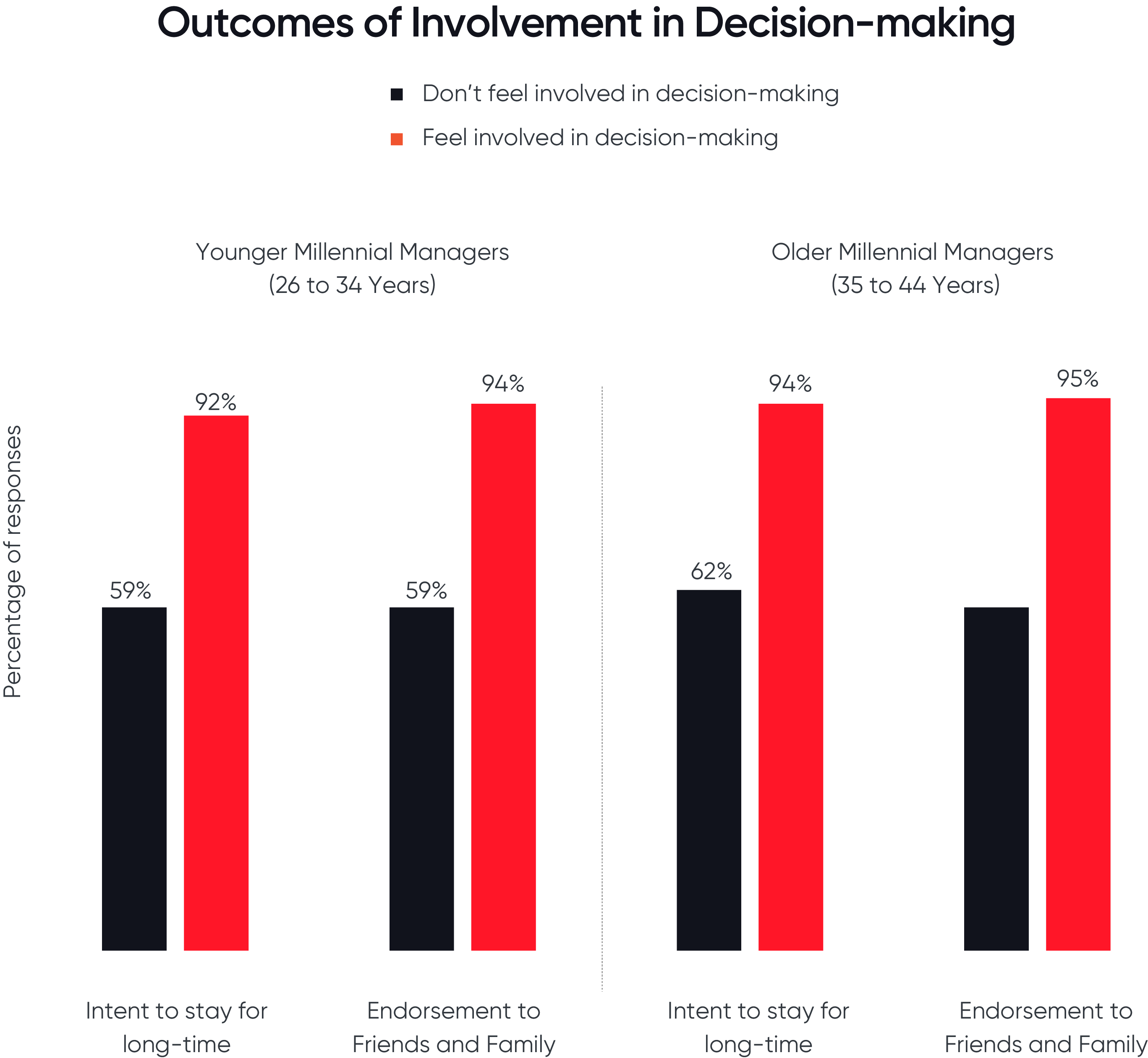
Great Place To Work India’s research highlights how the Best Workplaces are rewriting the rules of building a high-trust, high-performance culture, especially when it comes to involving millennial managers in decision-making at work and empowering them to deliver effectively.
At organisations recognised as India’s Best Workplaces For Millennials 2025, 86% of millennial managers feel involved in decision-making, 10% more than in other workplaces. We found three emerging initiatives that are fuelling this experience at the Best Workplaces.
Three Ways The Best Workplaces Are Involving and Empowering Millennial Managers
1. Access to leadership and opportunity to participate in business-critical initiatives.
Our research highlights that many of the Best Workplaces have embedded involvement as a fundamental part of their organisation’s DNA and how they run the business overall.
H&R Block (India) Private Limited, one of the Best Workplaces for Millennials, has an Organisational Effectiveness Committee to involve employees in decision-making. It comprises a 10-member team along with the Managing Director that connects on a weekly basis to identify areas of improvement and suggest action plans, ideas and solutions to the corresponding departments.
Best Workplaces create platforms for employees to contribute to strategic business initiatives beyond their routine roles. They do this by identifying high-performing and high-potential employees. These employees are provided enhanced exposure through opportunities to interact with the leadership team. Best Workplaces offer opportunities to participate and contribute to strategic business initiatives directly. This also becomes an opportunity to build and groom the leadership pipeline.
2. Co-creating policies and empowerment to become agents of change.
Best Workplaces tap into the energy and experience of millennial managers by facilitating programs that offer unique opportunities to drive positive change for the organisation. Through these platforms, employees can test or co-create policies, products or new processes. This ensures employees have a voice and opportunity to contribute to key changes and new initiatives in the organisation. All the inputs received are debated within internal teams, and those that cannot be incorporated are communicated with a rationale for not considering the ideas.
Best Workplaces focus on creating a diverse team comprising representatives from all departments to make decisions on people policies, rather than relying on the human resources team. To meaningfully include millennials, one of the Best Workplaces also promotes Millennial Councils to leverage insights and diversify perspectives, which are then used to test and pivot initiatives critical to the younger generation workforce. This not only helps solve for the bias in policies but also creates opportunities for reverse mentoring, bringing fresh ideas and concepts to the table.
3. Create opportunities to be part of the solution.
The Best Workplaces know that some of the best innovations come directly from employees by offering them platforms to share their ideas and, more importantly, encouraging a culture of experimentation. Moreover, we have observed that there is a growing trend that also creates opportunities for employees to implement their ideas and become a part of the solution.
Edelweiss Life Corporation Company Limited hosts ‘Culture Premier League’, to foster involvement in solving challenges. It has designed the initiative to take employees through a series of challenges revolving around the theme ‘My team, My pride’. The top teams compete in the final and pitch innovative ideas to Directors for a chance to emerge as a CPL champion for their respective zones.
Best Workplaces create space for employees to drive the innovation charter alongside their core responsibilities. The range of these projects varies from technical to non-technical, of any shape or size, and is relevant to the organisational goals and objectives. This helps create a safe space and freedom to explore areas of interest for people from every department and fosters a sense of involvement in the organisation’s innovation projects.
Way Forward
For programs like these to be successful, it is essential that the loop is closed in time and feedback is shared transparently if an idea is not selected; otherwise, employees may lose faith in the program. As millennials belong to an era where everyone experienced the growing influence of the internet and social media, where feedback and communication became instant. Over time, this made millennials more used to sharing opinions than earlier generations and also receiving quick responses through online communications. Hence, it is only natural for them to bring those expectations of openness to workplace cultures too.
Thus, involvement in decision-making will stay relevant for millennials to experience a great workplace, making it increasingly critical for organisations today to empower them to reach their full potential.
To sum it up, these practices showcase an intentional strategy that highlights involvement as a core value and experiences that are positively valued in the workplace culture. This creates a shift for Best Workplaces that allows for increased trust and empowerment.
Millennial managers are the current and future leaders of workplaces and involving them becomes a strategic imperative for organisations to sustain and grow. The approach of listening as a component of their day-to-day experience, empowering them to take ownership that triggers positive change, and integrating fresh ideas through diverse cross-functional teams signals to the workforce that every voice matters. Thus, involvement in decision-making not only shapes better decisions but also shapes a better future for the organisation.

